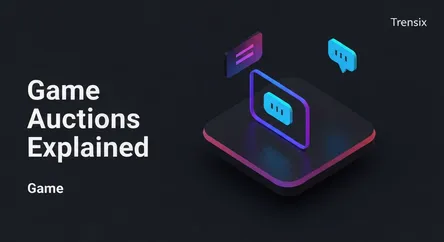Game
Game Auctions Explained

Discover the auction mechanic in video games. Learn how these player-driven marketplaces create dynamic economies and impact player interaction.
What is it?
An auction mechanic, often called an Auction House or Trading Post, is a centralized, in-game marketplace where players can buy and sell virtual items. Instead of trading directly, players list items like gear or resources for others to bid on or purchase outright. This system facilitates a player-driven economy, allowing the community to set the value of goods based on supply and demand. Common formats include English auctions, where the price increases with bids, and fixed-price "buyout" options for immediate purchase, creating a dynamic and accessible trading hub.
Why is it trending?
Auction mechanics are a cornerstone of many online games, especially MMORPGs, because they add incredible depth and longevity. They create a living economy that engages players beyond combat. This system allows players to monetize their skills, whether through crafting or farming. It also provides a reliable way to obtain specific items without relying purely on random drops (RNG), empowering players to progress on their own terms. Developers favor this mechanic as it fosters community interaction, encourages specialization, and keeps players invested in the game's world long-term.
How does it affect people?
For players, an auction system transforms the gameplay experience. It creates new avenues for progression, as some may focus on "playing the market" to earn wealth. It allows casual players to acquire high-level gear they might not have time to earn directly, while dedicated players can profit from their efforts. This can foster community and interdependence between different player types, like crafters and adventurers. However, it can also lead to economic challenges like inflation or market manipulation, requiring careful balancing from developers to ensure fairness and accessibility.